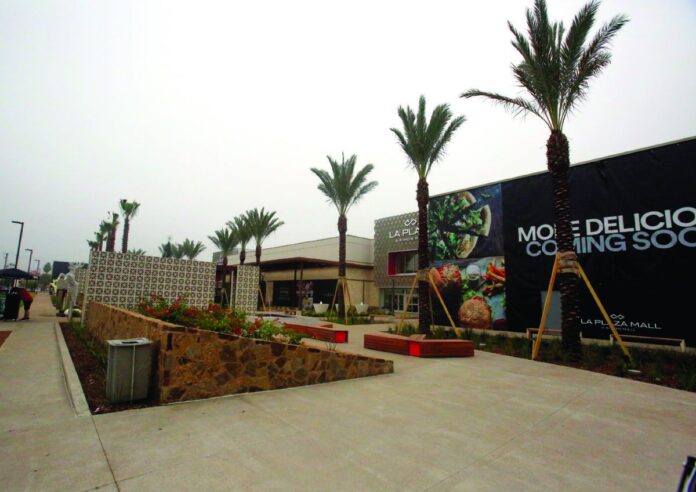On Friday, Rio Grande Valley residents will be allowed to go inside restaurants and shops deemed non-essential, due to COVID-19, for the first time in about a month.
Gov. Greg Abbott released Monday a plan detailing steps that will be taken to resuscitate the economy; Friday’s new regulations will supersede local orders, allowing restaurants, retail stores, malls, libraries, museums and theaters to open at 25% capacity.
According to McAllen Mayor Jim Darling, his city will likely use the fire marshal’s capacity numbers to determine that headcount for businesses.
Two Valley locals, construction magnate Alonzo Cantu of McAllen and attorney David Oliveira, have worked on the creation of the economic recovery plan as part of a 39-person special advisory council Abbott has tasked with assisting in the reopening process.
Oliveira says as a member of the council he consulted with hundreds of businesspeople, along with the county judges of Hidalgo and Cameron counties.
“We compiled all those questions and suggestions, and collected them all and forwarded them on to the governor’s office, and from there that’s how the governor came up with his 63-page plan,” he said.
According to Oliveira, although the plan is intended to be implemented across the state, it could be particularly helpful to some Valley residents.
“We’ve got a lot of people who are suffering economically right now. A lot of our folks live paycheck-to-paycheck in the retail industry and restaurant industry,” he said. “I think that getting the economy going again in Texas will be beneficial to South Texas.”
Oliveira, a self-proclaimed Democrat, said he supports the plan and Abbott’s leadership through the pandemic.
“I think the governor has also provided good leadership and good guidance. All of the executive orders he’s come out with have been well thought out and based on medical data and science, based on what his medical experts have told him… I think they have been, for the most part with all these steps, keeping the public safety in mind,” he added.
Getting customers back into stores and restaurants doesn’t mean Texas is necessarily in the clear, Oliveira noted. Although restaurants are allowed to open, it’s unclear whether all of them will, or if diners will be willing to be part of the 25% allowed through the door.
“It’s going to be tough to start back up. People are very leery right now,” he said. “I’m hoping most people will continue practicing social distancing and all the other sanitary measures that the medical community has recommended. I think they will, but it remains to be seen how many people will start returning to restaurants.”
If people do go out and there’s an increase in COVID-19 cases, Oliveira said it’s possible the governor will slow or temporarily halt the economic rollout.
“If that happens, then of course we don’t go into phase 2. Phase 2 involves expanding to 50% of occupancy for restaurants and retail,” he said. “They’re going to look at that, I think phase 2 is supposed to start May 18, so they’re going to be carefully monitoring across the state to see if there is an increase … the last thing you want to do is rush into this and take one step forward and two steps back.”
Darling addressed the subject of some sort of coronavirus spike as well. The governor’s orders will supersede regulations previously passed at the municipal and county level, and Darling says it’s up to the community to continue practicing social distancing and hygiene habits on a voluntary basis.
“The governor’s order supersedes the city, so shelter-in-place is gone and masks are gone,” he said. “Hopefully these businesses will be smart, because if they don’t and the numbers start increasing, I think there can be a flare-up and then they’ll be shut down again. So it’s up to our citizens to be smart and our businesses to make sure they operate appropriately.”
Some places, like the city of McAllen’s libraries and community centers, will likely still require masks, Darling said.
“We think it’s appropriate to do that because of potential for interchange,” he said. “A private business can require masks too if they wanted to, that’s up to them, but it’s not enforceable by order of law.”
According to Darling, Gov. Abbott will take a lead role in dictating the terms of the economic startup from this point going forward. However, municipalities will have a role in enforcing and deciphering those orders.
“The governor recognized that it’s going to be local government to do the enforcement, to make sure people are abiding by it,” he said. “It’s a good partnership. Obviously the state doesn’t have the manpower to go to 1,100 cities and enforce this, so it has to be a partnership.”
Darling said he supports the governor’s decision based on the county’s relatively light case numbers. He acknowledged that for some parts of the city, implementing the new rules will be more difficult, including at La Plaza Mall, which is slated to open Friday.
“The mall’s challenging for us, and downtown. They’re just different venues, but we’ll be OK,” he said. “The stores will open, the food court won’t; that’s my understanding. We’re trying to figure out how to do the stores.”
Darling said using one-way foot traffic inside the mall was a possibility for implementing social distancing. He said he’d heard interest expressed in stores in the mall opening, even if only on a limited basis, and that he expected to speak with the mall’s management more about reopening Wednesday.
Darling said the next economic hurdle will involve non-essential businesses that will still not be allowed to let customers in the door.
“The next one’s going to be a little more difficult, because it’s bars and gyms and barbershops, things where people normally come into closer contact than other places,” he said.





